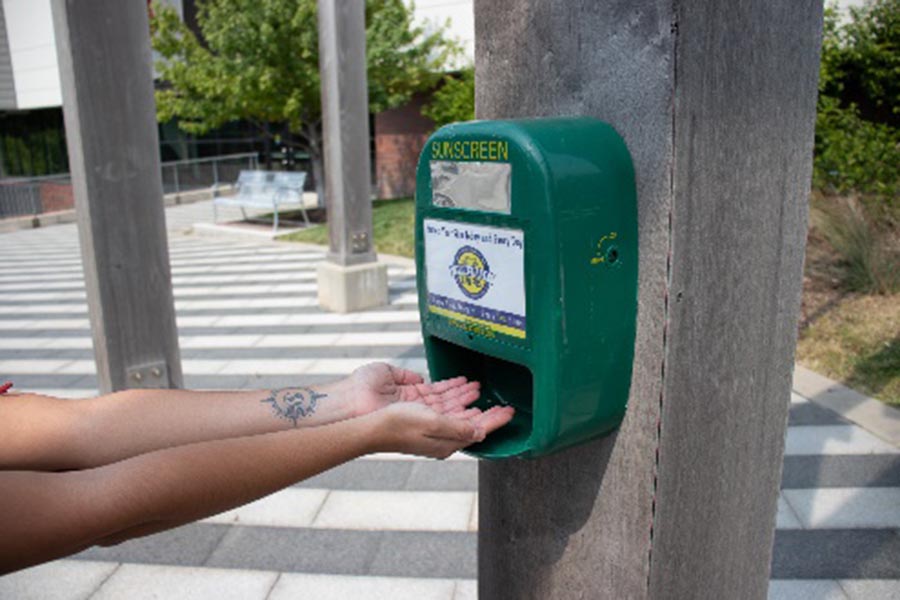Skin Smart Campus

Skin Smart Campus Award
UNMC was honored as a Skin Smart Campus by the National Council on Skin Cancer Prevention with a gold award in April 2021, followed by a platinum award in May 2021.
The journey to join the Skin Smart Campus Initiative has been a grassroots effort by the UNMC College of Medicine medical students. UNMC has been achieved all three levels of the Skin Smart Campus award: Silver, Gold and Platinum.
The first requirement for colleges and universities to achieve any level of the award is they must not have indoor tanning devices on campus or in any college/university-affiliated building.
Despite the known risks, indoor tanning is common among adolescents and young adults with 37% of white adolescent females and 11% of adolescent white males having used indoor tanning facilities at least once in their lifetime.1 Additionally, early research suggests that indoor tanning has addictive properties and that the risk of addiction is higher for individuals who begin tanning at an earlier age.
The Indoor Tan-Free Skin Smart Campus Initiative is sponsored by the National Council on Skin Cancer Prevention in response to the 2014 U.S. Surgeon General’s Call to Action to Prevent Skin Cancer. The Indoor Tan-Free Skin Smart Campus Initiative encourages U.S. universities and colleges to promote skin cancer prevention policies and education on campus. A college may self-nominate for the Indoor Tan-Free Skin Smart Campus Award recognition or be nominated by a member of the Indoor Tan-Free Skin Smart Campus working group. The universities recognized by this award will have demonstrated a commitment to skin cancer prevention and the ongoing health of their students.
Learn more about skin cancer and the national Skin Smart Campus initiative.